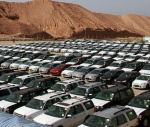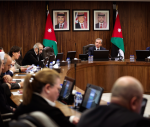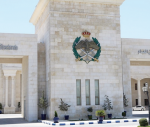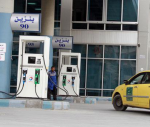You are here
Ukraine and beyond
Apr 24,2014 - Last updated at Apr 24,2014
The Ukraine crisis has evolved from acute to chronic. The main question — Will Russia dare to invade mainland Ukraine? — has been answered: Not now.
So, now what?
Obviously, the Kremlin did not expect the West’s firm and united reaction to its annexation of Crimea.
President Vladimir Putin’s phone call to US President Barack Obama on March 28 clearly demonstrated Russia’s eagerness to discuss “de-escalation”.
Putin’s main objectives now are the removal of Ukraine’s blockade of Moldova’s pro-Russian breakaway region of Transnistria and Ukrainian “federalisation” (a euphemism for the Kremlin’s back-door strategy to gain control over the country’s eastern and southern regions).
But there can be no return to business as usual anytime soon. Russia’s invasion and annexation of Crimea has triggered unintended tectonic shifts in international politics.
While the long-term implications are still hazy, the immediate consequences are clear.
First, the Russian people will pay dearly in terms of their own freedom for their leaders’ reckless decisions.
After the Soviet invasion of Czechoslovakia in 1968, the Russian poet Alexander Galich wrote: “Compatriots, our homeland is in danger! Our tanks are in a foreign land!”
Confrontation with the West, seemingly unavoidable after the Crimea Anschluss, will give rise to a “mobilisation” regime.
Russia’s new draft budget, with its skyrocketing military outlays, along with paranoid talk of “fifth columns” and “national traitors”, attests to this trend.
In such circumstances, sanctions that hit ordinary people will only help the regime consolidate its power.
Second, the crisis has several geopolitical ramifications. The Kremlin’s actions have undermined European security; delivered a body blow to international law; weakened the nuclear non-proliferation regime by fatally undermining the role of security guarantees for non-nuclear states; and raised doubts about the predictability of Russia under its current leaders.
All of this will have far-reaching effects in the years and decades ahead, ranging from the realignment of formal and informal alliances and the militarisation of security arrangements to possible — and long discussed — adjustments in the international governance system.
Russia’s expulsion from the G-8 and renewed military buildups are only the first of many such changes.
Third, the Ukraine crisis will completely transform Russia’s relations with the West.
During the first two decades after the Cold War, a combination of suspicion and pragmatism prevailed on both sides, with competition in some respects and cooperation in others playing a crucial role in coping with important international challenges.
The relationship’s transformation into an adversarial one will “contaminate” the international system, undermining potential solutions to many problems, from nuclear arms reduction and climate change to stabilising regional hot spots like Syria.
In response to Western sanctions, the Kremlin will bring pressure to bear on the United States and its allies by creating problems elsewhere.
For example, Russia has already offered to build two new, nonmilitary nuclear reactors in Iran.
Technological support for Iran’s nuclear programmes could impede the ongoing international negotiations aimed at preventing Iran from developing nuclear weapons, especially as the Iranians are looking for leverage in the talks.
Russia could escalate the crisis by putting pressure on the US closer to home as well.
Consider Venezuela, where — as with Iran’s nuclear programme — Russia has demonstrated its willingness to take risks that it would not have taken before.
On February 26, Russian Defence Minister Sergei Shoigu formally announced his government’s plan to expand its overseas military presence. Venezuela is high on its list, having already purchased more than three quarters of the $14.5 billion in arms sold by Russia in the region from 2001 to 2013.
Fourth, having annexed Crimea, Russia has lost Ukraine, turning it from friend to foe.
Ukraine’s industrial and manufacturing infrastructure evolved under the Soviet Union as a compliment to Russia’s resource base.
After the Soviet Union’s dissolution, the Russian resource economy’s traditional links with Ukraine, including extensive pipeline infrastructure, ensured access to European markets.
Now, having lost Ukraine’s industrial and manufacturing base, and with Europe more determined than ever to reduce its dependence on Russian energy supplies, the Kremlin will need to turn eastward towards China, which will be happy to see Russia remain a resource economy in thrall to it.
Given all of these potential dire consequences, it is vital to prevent Cold War II. During the coming transition period, the world will need new mechanisms for international dialogue.
Isolation of Russia would be counterproductive, merely aggravating its highly developed sense of victimisation and possibly turning it into a “rogue” state — truly a nightmare scenario, given that Russia has the world’s largest nuclear arsenal.
Instead, targeted economic sanctions and calibrated military measures should be coupled with intensive and open political dialogue.
A personal meeting between US, Russian and German leaders could be helpful in channelling relations towards a non-destructive course. To be truly productive, such contact should not be limited to resolving the Ukraine crisis — or to senior officials.
The Ukraine crisis should not be allowed to obscure the full range of challenges that the world faces.
In fact, the standoff is more likely to be resolved constructively within a framework that seeks consensus on a broader agenda.
After all, any crisis creates new opportunities (for example, the Syrian civil war has prompted important action on chemical weapons).
The opportunity for Russia and the West is to generate the political will needed to address issues — above all, reform of an outmoded system of international relations — that have been ignored for too long.
The writer is president of Green Cross International and a member of the Climate Change Task Force (CCTF). ©Project Syndicate, 2014. www.project-syndicate.org












